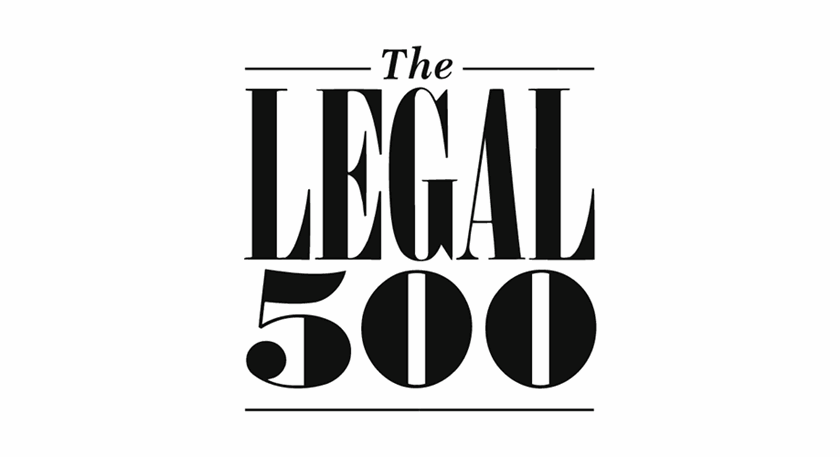Antisemitism and Islamophobia in schools
Insight

Despite the increasing awareness in society of the need to identify and counter racism and religious intolerance, Antisemitism and Islamophobia remain pervasive in British society and have been steadily rising.
Schools of course bring together staff and pupils of many diverse faiths and races and are responsible for ensuring that they create a safe workplace and place of learning.
Unfortunately, schoolchildren have not been spared the increase in Antisemitic violence.
- CST Antisemitic Incidents Report January – June 2021 noted a 491 per cent increase of Antisemitic incidents towards Jewish schoolchildren at both faith-based and secular schools following the outbreak of conflict in Israel. For example, in May a group of boys in Jewish school uniform were waiting for the bus. They were harassed and assaulted by three other boys on the bus.
- A survey from 2020 reported that 44 per cent of British Jews do not display visible signs of their faith in public - the highest figure recorded since 2016 and for the third year in a row, 25 per cent have considered leaving the UK in the past two years.
Similarly, Islamophobia is unfortunately common in the UK:
- For the year ending March 2020, Home Office data shows that half of all recorded religious hate crime offences were targeted against people of the Muslim faith.
- In the employment context, research from 2017 found that young people of the Muslim faith are being “held back from reaching their full potential at every stage of their lives”. For example, the report noted that teachers often had low expectations of Muslim children. There was little encouragement and guidance for Muslim children. There is a low prevalence of Muslim teachers in schools for young people to look up to.
- The Islamophobic response unit noted it is common for them to receive complaints of schools not providing adequate prayer spaces and insufficient exceptions for uniform policies.
In this article we consider the definition of both Islamophobia and Antisemitism, how they are treated under civil and criminal law, and practical tips for schools to combat race or religious discrimination.
Terminology
Antisemitism
Broadly speaking, Antisemitism can be described as hostility to, or prejudice against, Jewish people. As it stands, there is no legally binding definition of Antisemitism in the UK. In 2016, the British government (along with many other countries) adopted the International Holocaust Remembrance Alliance (IHRA) working definition of Antisemitism:
“Antisemitism is a certain perception of Jews, which may be expressed as hatred toward Jews. Rhetorical and physical manifestations of Antisemitism are directed toward Jewish or non-Jewish individuals and / or their property, toward Jewish community institutions and religious facilities.”
The IHRA gives illustrative examples of Antisemitism, which include:
- making dehumanising, demonising or stereotypical allegations about Jews;
- denying the fact, scope, mechanisms or intentionality of the Holocaust;
- denying Jewish people their right to self-determination; and
- holding Jews collectively responsible for actions of the state of Israel.
The parameters of the IHRA definition have been the subject of controversy – the resistance within the Labour party to adopting this definition may be recalled. The definition is seen by some to define criticisms of Israel’s policies and practices as Antisemitic, thereby impinging on freedom of expression.
In response, the UK Government has cited the caveat in the definition, that “the criticism of Israel similar to that levelled against any other country can’t be regarded as Antisemitic”, as being sufficient to ensure that freedom of speech is preserved.
Islamophobia
Islamophobia is broadly understood to mean the fear of, hatred of, or prejudice against the religion of Islam or people of the Muslim faith in general. As it stands, there is no legally binding definition of Islamophobia. While not universally accepted, the All Party Parliamentary Group (APPG) on British Muslims’ working definition of Islamophobia is:
“Islamophobia is rooted in racism and is a type of racism that targets expressions of Muslimness or perceived Muslimness.”
The APPG gave contemporary examples of Islamophobia, including:
- “Calling for, aiding, instigating or justifying the killing or harming of Muslims in the name of a racist / fascist ideology, or an extremist view of religion”.
- Making “dehumanizing, demonizing, or stereotypical allegations about Muslims as such, or of Muslims as a collective group” including “the myth of Muslim identity having a unique propensity for terrorism, and claims of a demographic ‘threat’ posed by Muslims or of a ‘Muslim takeover’”.
- “Accusing Muslims as a group of being responsible for real or imagined wrongdoing committed by a single Muslim person or group of Muslim individuals, or even for acts committed by non-Muslims”.
The UK Government rejected the APPG definition in 2019 on that basis that it raised “practical and legal challenges” and was “not in line with the definition [of racism] enshrined in the Equality Act 2010”. It announced that it would appoint two expert advisers to establish a new working definition of Islamophobia.
In the meantime, the APPG definition has been adopted by city councils, various political parties include Labour, the Liberal Democrats, Plaid Cymru and the Scottish National Party, and has been endorsed by 750 British Muslim organisations, 80 academics and 50 MPs. The Muslim Council of Britain (MCB), the UK’s largest umbrella body for people of the Muslim faith, has endorsed the APPG definition. In a report published in March this year, the MCB stated the APPG definition reflects how discrimination is experienced by members of the community in practice.
The Law
Discrimination: which protected characteristics are engaged?
The Equality Act 2010 contains a number of provisions which prohibits certain conduct if it is based on one of nine protected characteristic – but what protected characteristics are relevant in this scenario?
Most obviously Antisemitic and Islamophobic issues may raise issues of discrimination based on religious belief. Under the Equality Act, “Religion” means any religion and includes a reference to a lack of religion.
However, the protected characteristic of race is also potentially engaged. Judaism has been long-established as a religion and race for the Equality Act. What about Islam? The position is less straightforward. It has been held that people of the Muslim faith, in general, do not constitute an ethnic group for the purpose of a direct race discrimination claim. However, Muslim claimants have been successful in obtaining race discrimination protection in some indirect discrimination cases. For example, it was held in JH Walker Ltd v Hussain that a workplace policy that prevented workers from taking holiday to celebrate Eid was indirectly discriminatory against workers originating from the Indian subcontinent.
What conduct is prohibited?
The Equality Act prohibits four main types of conduct. Schools are of course both employers of staff and must comply with part 5 of the Act which relates to employment and could also face claims on behalf of pupils and their parents under part 6 of the Equality Act 2010 which relates to education.
S85 Equality Act reminds schools that they cannot discriminate in admission decisions, terms of admissions, the way it provides education or access to benefits or facilities and in disciplining pupils. The below should be read in conjunction with the S85 obligation.
(a) Direct discrimination
This occurs where a person (A) is treated less favourably than another because of a protected characteristic. For example, refusing to admit a Jewish child into school or a class because of their Jewish faith. Remember, the motivation for the treatment direct discrimination is irrelevant. Direct discrimination done with a genuinely benign motive, is still discrimination (Moyhing v Barts and London NHS Trust).
(b) Indirect discrimination
This occurs where a provision, criterion or practice applies to everyone, but it puts people with a particular protected characteristic at a disadvantage without a good reason. For example, a policy that no outward religious or political symbols could be warn at school. While neutral on its face, it will cause greater disadvantage for Jewish boy’s wearing kippahs or Muslim girls wearing headscarves than for Christian children.
(c) Harassment
This occurs where A engages in unwanted conduct related to a protected characteristic which has the purpose and effect of either violating B’s dignity, or creating an intimidating, hostile, degrading, humiliating or offensive environment for B. For example, bullying, cyberbullying or unwanted “banter”. Note that there is a somewhat odd carve out in S85 (10) of the Equality Act 2010 which means that in the Schools context, a claim of harassment cannot be brought against a school based on the protected characteristics of gender reassignment, religion or belief or sexual orientation. This means that for Antisemitic and Islamophobic acts of harassment, it will be necessary to rely instead on the protected characteristic of race.
(d) Victimisation
This occurs where A subjects B to a detriment because B has done a protected act or A believes that B has done or may do a protected act. Most commonly, a protected act is a discrimination complaint. For schools this provision is slightly broader. If a parent or a sibling has done or A believes they may do a protected act, the child is protected from detriment. For example, a teacher (A) giving a child of Muslim faith detention because their parent (B) had raised concerns about an act of discrimination by that teacher, is prohibited.
Usually, a school will not be responsible for discrimination, harassment or victimisation by someone other than their employee or agent. However, a school could be held responsible for failing to take action where you have some degree of control over a situation where there is a continuing course of offensive conduct, but do not take action to prevent its recurrence even though they are aware it is happening.
Criminal Law
In serious cases, Antisemitic or Islamophobic behaviour at school, either between members of staff or by staff towards pupils might breach criminal law. Although there is no specific “crime” or “offense” of Antisemitism, there is legislation in place in the UK to protect people from racial or religious hatred.
The Racial and Religious Hatred Act 2006 makes it an offence for someone to intentionally stir up hatred against an individual on the grounds of religious or racial background by using threatening words or behaviour or displaying threatening written material. Racial hatred is defined as hatred against a group of persons defined by reference to colour, race, nationality or ethnic or national origins.
Clearly, depending on the facts of the case, Antisemitic or Islamophobic behaviour could involve other criminal offences (eg assault) in very serious cases. This may be relevant in the most severe instances of peer-on-peer abuse occurring in-school, out of school or online. Robust mechanisms should be in place to look after the physical and mental health of the child who maybe be a victim under the criminal law.
Tips for schools
Practical advice for tackling both Antisemitism and Islamophobia are similar but all advice must be adapted to match the specific context.
Equal opportunities / bullying and harassment training
Employers can be held vicariously liable for discrimination or harassment committed by an employee, unless they can show that they took all reasonable steps to prevent an employee from carrying out the discriminatory act. Employers should therefore be providing an ongoing programme of effective equality training. Training should equip staff to recognise and safely challenge unacceptable behaviour. These should form part of the induction so that staff can recognise unacceptable conduct. The severity of discriminatory language must be highlighted and ought not be dismissed as “just banter”. Similarly, pupils should be educated, whether in lesson or assembly times, about religious beliefs other than their own (if any) to promote understanding and encourage pupils to think.
Religious holidays
The Equality and Human Rights Commission Code of Practice states that employers should seek to accommodate an employee’s request for annual leave for a religious occasion, provided that they have sufficient holiday entitlement and it is reasonable for them to be absent from work during the period requested. Failure to do so may lead to liability for indirect discrimination. For example Fugler v MacMillan-London Hairstudios Ltd, where an employee’s claim succeeded after her request for a day’s holiday on Yom Kippur was refused by her employer, and was found not to be objectively justified. Our colleague Shehnal Amin has written recently about how to support your employees in the holy month of Ramadan, accessible here. Similar considerations should be applied to pupils undertaking Ramadan, particularly if it falls over a period of examination.
Dress code
Many employers will be aware that dress codes ought not interfere with an employee’s or school’s right to manifest their belief, unless it can be objectively justified. The EAT has held that a dismissal of a teacher due to wearing of religious dress that impeded effective communication was fair (see Azmi v Kirklees Metropolitan Borough Council). A blanket policy is unlikely to be justifiable, and especially will not be if it is directly discriminatory against a particular religion or faith.
As a matter of best practice, it is best to engage with parents and staff. Differences in manifestation of belief does not necessarily make any one of those beliefs invalid and an individual is entitled to change their mind about manifesting their belief.
Increasing inclusivity
Increasing inclusivity for employees of the Muslim faith might include providing a prayer room (as Muslims are required to offer five daily prayers), and offering Halal and Kosher food and non-alcoholic drinks options at work events, lunch times and school trips.
Policies
Ensure your policies on equal opportunities, bullying and harassment and whistleblowing are up to date. It’s also worth checking for consistency between different policies, eg to ensure that the code of conduct doesn’t undermine the bullying and harassment policy.
Online conduct
In certain circumstances, it may be possible to discipline staff for online conduct or conduct outside of work, for example where there is a clear link between the conduct of the employee and the employer, where the conduct impacts on other employees or where the employer’s reputation is harmed as a result of the conduct. It is therefore worth checking that your policies and codes of conduct allow for disciplinary sanctions relating to online conduct and conduct outside of work. For pupils, introducing a clear policy on social media use can also ensure that employers can restrain unacceptable behaviour online. Your terms of use should also make it clear to pupils that comments said online may result in disciplinary measure if severe enough. Further, you should ensure lessons have appropriate lessons about cyberbullying and online hate speech. The UK Council for Internet Safety has published useful guidance about what pupils at each key stage should be learning about their online conduct. A key recommendation is to teach children, as early as Key Stage 2, about how to spot “fake news” which may be perpetuating Antisemitic and Islamophobic rhetoric.
Managing allegations
Acknowledge that Antisemitism and Islamophobia takes many forms, including overt verbal slurs, tropes, stereotyping and conspiracy theories. Employers should ensure that their channels in place for reporting incidents are effective. Ensure that when allegations are raised, no matter how “low level” they seem eg jokes / banter, they are addressed promptly, proportionately and fairly. Fair processes are key, as is avoiding knee jerk reactions, which can cause issues if litigation arises further down the line. It may be the case that reforming measures, such as extra classes and education about Judaism or Islam, is more appropriate than a drastic sanction. Having an effective low-level reporting process is key. For more information, please see our previous blog here.
Managing debates and discussions
With recent conflicts in the Middle East, it is natural these topics might come up in school debates or classroom discussions. Teachers must be careful in managing those debates. The school ought not stifle free speech, but should ensure that debates do not become a gateway to legitimise abhorrent verbal or physical abuse towards Jewish or Muslim students and staff as noted at the beginning of this article. While discussing controversial issues truthfully, factually and fairly will not normally constitute harassment, abhorrent speech based on purported facts or stereotypes is not protected. Schools should have clear policies in place with teachers ready to correct any comment that is “over the line” or based on stereotypical assertions or purported reality.
As part of this it is essential that teachers are properly educated on exactly what they are teaching – particularly in sensitive topics. A recent study by UCL found that teachers were dangerously mis-informed about the Holocaust with most not knowing where or when it began and almost 20 per cent of those teaching the Holocaust had not received specialist training. The study noted the responsibility of schools to teach topics accurately as a key factor to stop dangerous false views about the Holocaust spreading, which could very easily lead to Antisemitic incidents inside and outside of schools.
If you require further information about anything covered in this briefing, please contact Maria Strauss, Katie Fudakowski or your usual contact at the firm on +44 (0)20 3375 7000.
This publication is a general summary of the law. It should not replace legal advice tailored to your specific circumstances.
© Farrer & Co LLP, October 2021







